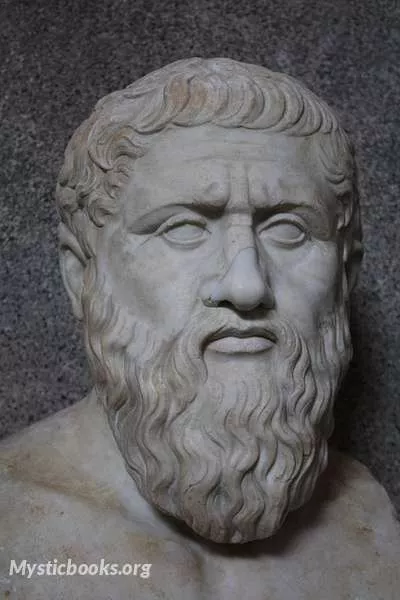
Timeline
Title
Country/Nationality
Plato (Πλάτων)
Plato ( Classical Attic; 428/427 or 424/423 – 348/347 BC)) was an Athenian philosopher during the Classical period in Ancient Greece, founder of the Platonist school of thought and the Academy, the first institution of higher learning in the Western world.
He is widely considered the pivotal figure in the history of Ancient Greek and Western philosophy, along with his teacher, Socrates, and his most famous student, Aristotle. Plato has also often been cited as one of the founders of Western religion and spirituality. The so-called Neo-Platonism of philosophers like Plotinus and Porphyry greatly influenced Christianity through Church Fathers such as Augustine. Alfred North Whitehead once noted: "the safest general characterization of the European philosophical tradition is that it consists of a series of footnotes to Plato.
Plato was the innovator of the written dialogue and dialectic forms in philosophy. Plato is also considered the founder of Western political philosophy. His most famous contribution is the theory of Forms known by pure reason, in which Plato presents a solution to the problem of universals known as Platonism (also ambiguously called either Platonic realism or Platonic idealism). He is also the namesake of Platonic love and the Platonic solids.
His own most decisive philosophical influences are usually thought to have been along with Socrates, the pre-Socratics Pythagoras, Heraclitus and Parmenides, although few of his predecessors' works remain extant and much of what we know about these figures today derives from Plato himself. Unlike the work of nearly all of his contemporaries, Plato's entire body of work is believed to have survived intact for over 2,400 years. Although their popularity has fluctuated over the years, Plato's works have never been without readers since the time they were written.
Due to a lack of surviving accounts, little is known about Plato's early life and education. Plato belonged to an aristocratic and influential family. According to a disputed tradition, reported by doxographer Diogenes Laërtius, Plato's father Ariston traced his descent from the king of Athens, Codrus, and the king of Messenia, Melanthus. According to the ancient Hellenic tradition, Codrus was said to have been descended from the mythological deity Poseidon.
The fact that the philosopher in his maturity called himself Platon is indisputable, but the origin of this name remains mysterious. Platon is a nickname from the adjective platýs (πλατύς) 'broad'. Although Platon was a fairly common name (31 instances are known from Athens alone), the name does not occur in Plato's known family line.
Ancient sources describe him as a bright though modest boy who excelled in his studies. Apuleius informs us that Speusippus praised Plato's quickness of mind and modesty as a boy, and the "first fruits of his youth infused with hard work and love of study".
Plato died at the age of 81 on the same day he was born. The Suda indicates that he lived to 82 years, while Neanthes claims an age of 84. A variety of sources have given accounts of his death. One story, based on a mutilated manuscript, suggests Plato died in his bed, whilst a young Thracian girl played the flute to him. Another tradition suggests Plato died at a wedding feast. The account is based on Diogenes Laërtius's reference to an account by Hermippus, a third-century Alexandrian. According to Tertullian, Plato simply died in his sleep.
Plato owned an estate at Iphistiadae, which by will he left to a certain youth named Adeimantus, presumably a younger relative, as Plato had an elder brother or uncle by this name.
Books by Plato (Πλάτων)

Plato's Republic
Plato's Republic is a Socratic dialogue which deals mainly with the definition of justice, the characteristics of a just city state and the just man. Although it was written more than two thousand years ago, many of the ideas and thoughts expounded h...
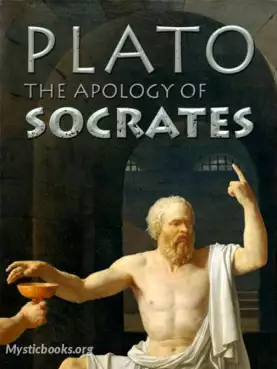
The Apology of Socrates
The Apology of Socrates written by Plato, is a Socratic dialogue of the speech of legal self-defence which Socrates spoke at his trial for impiety and corruption in 399 BC. Specifically, the Apology of Socrates is a defence against the charges of "c...
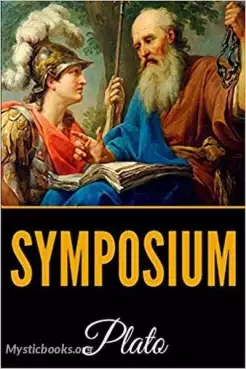
The Symposium
The Symposium is a philosophical text by Plato dated c. 385–370 BC. It depicts a friendly contest of extemporaneous speeches given by a group of notable men attending a banquet. The men include the philosopher Socrates, the general and political figu...
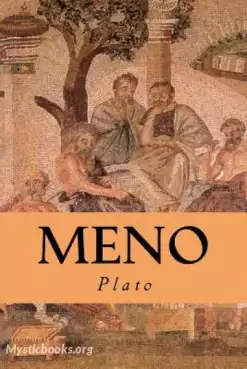
Meno
Meno is a Socratic dialogue by Plato. Meno begins the dialogue by asking Socrates whether virtue is teachable. In order to determine whether virtue is teachable or not, Socrates tells Meno that they first need to determine what virtue is. When the ch...
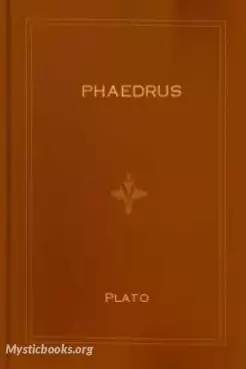
Phaedrus
The Phaedrus written by Plato, is a dialogue between Plato's protagonist, Socrates, and Phaedrus, an interlocutor in several dialogues. The Phaedrus was presumably composed around 370 BCE, about the same time as Plato's Republic and Symposium. Althou...
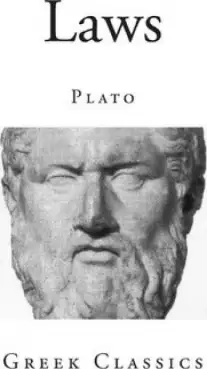
Laws
Laws is Plato's last and longest dialogue. It is generally agreed that Plato wrote this dialogue as an older man, having failed in his effort in Syracuse on the island of Sicily to guide a tyrant's rule, instead having been thrown in prison.
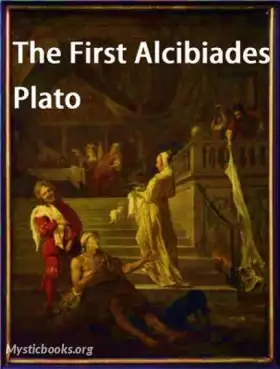
Alcibiades I
The First Alcibiades, also referred to as Alcibiades Major and abbreviated as Alcibiades I is a dialogue depicting Socrates in conversation with Alcibiades. It is ascribed to Plato, although scholars are divided on the question of its authenticity.
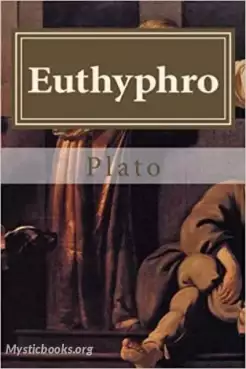
Euthyphro
Euthyphro by Plato, is a Socratic dialogue whose events occur in the weeks before the trial of Socrates (399 BC), between Socrates and Euthyphro. The dialogue covers subjects such as the meaning of piety and justice. As is common with Plato's earlies...

Gorgias
Gorgias is a Socratic dialogue written by Plato around 380 BC. The dialogue depicts a conversation between Socrates and a small group of sophists (and other guests) at a dinner gathering. Socrates debates with the sophist seeking the true definition...

Parmenides
Parmenides is one of the dialogues of Plato. It is widely considered to be one of the most challenging and enigmatic of Plato's dialogues. The Parmenides purports to be an account of a meeting between the two great philosophers of the Eleatic school,...

Critias
Critias, one of Plato's late dialogues, recounts the story of the mighty island kingdom Atlantis and its attempt to conquer Athens, which failed due to the ordered society of the Athenians. Critias is the second of a projected trilogy of dialogues, p...
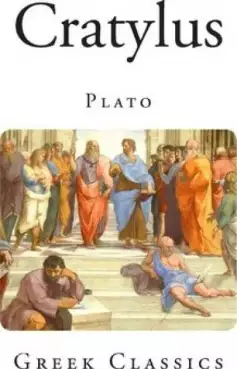
Cratylus
Cratylus is the name of a dialogue by Plato. Most modern scholars agree that it was written mostly during Plato's so-called middle period. In the dialogue, Socrates is asked by two men, Cratylus and Hermogenes, to tell them whether names are "convent...
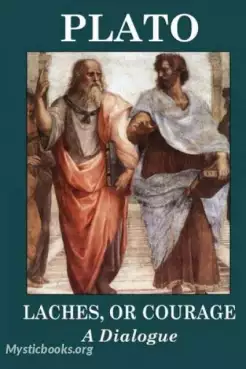
Laches
The Laches is a Socratic dialogue written by Plato. Participants in the discourse present competing definitions of the concept of courage.
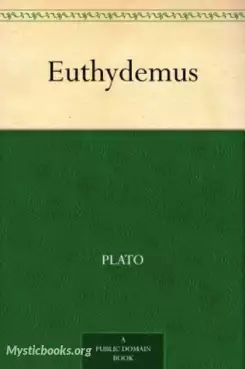
Euthydemus
Euthydemus written c. 384 BC, is a dialogue by Plato which satirizes what Plato presents as the logical fallacies of the Sophists. In it, Socrates describes to his friend Crito a visit he and various youths paid to two brothers, Euthydemus and Dionys...
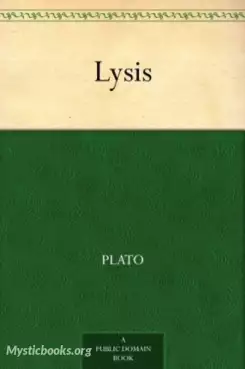
Lysis
Lysis is a dialogue of Plato which discusses the nature of philia often translated as friendship, while the word's original content was of a much larger and more intimate bond. It is generally classified as an early dialogue.

Statesman
The text depicts a conversation among Socrates, the mathematician Theodorus, another person named Socrates (referred to as "Socrates the Younger"), and an unnamed philosopher from Elea referred to as "the Stranger". It is ostensibly an attempt to arr...

Sophist
The Sophist is a Platonic dialogue from the philosopher's late period, most likely written in 360 BC. In it the interlocutors, led by Eleatic Stranger employ the method of division in order to classify and define the sophist and describe his essentia...
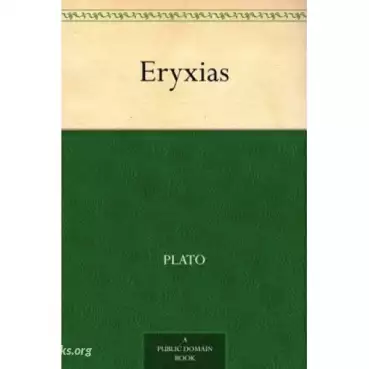
Eryxias
Eryxias is a Socratic dialogue attributed to Plato, but which is considered spurious. It is set in the Stoa of Zeus Eleutherios, and features Socrates in conversation with Critias, Eryxias, and Erasistratus (nephew of Phaeax).

Lesser Hippias
Hippias Minor or On Lying, is thought to be one of Plato's early works. Socrates matches wits with an arrogant polymath, who is also a smug literary critic. Hippias believes that Homer can be taken at face value, and he also thinks that Achilles may...
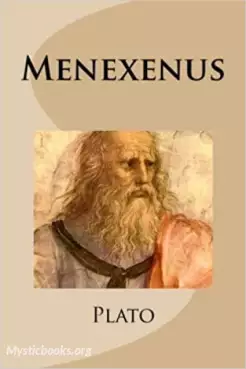
Menexenus
The Menexenus is a Socratic dialogue of Plato, traditionally included in the seventh tetralogy along with the Greater and Lesser Hippias and the Ion. The speakers are Socrates and Menexenus, who is not to be confused with Socrates' son Menexenus. The...
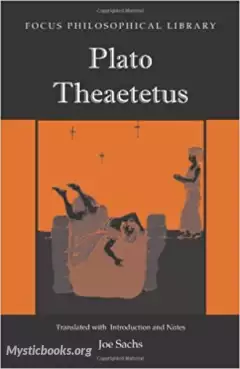
Theaetetus
The Theaetetus is one of Plato's dialogues concerning the nature of knowledge, written circa 369 BCE. In this dialogue set in a wrestling school, Socrates and Theaetetus discuss three definitions of knowledge: knowledge as nothing but perception, kn...
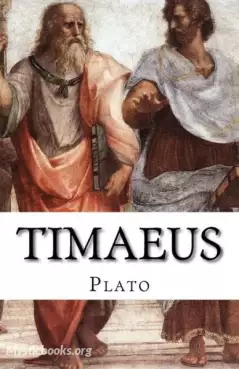
Timaeus
Timaeus is one of Plato's dialogues, mostly in the form of a long monologue given by Critias, written c. 360 BC. The work puts forward speculation on the nature of the physical world and human beings and is followed by the dialogue Critias.
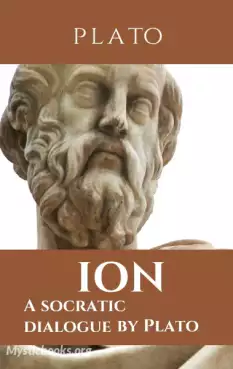
Ion
In Plato's Ion Socrates discusses with the titular character, a professional rhapsode who also lectures on Homer, the question of whether the rhapsode, a performer of poetry, gives his performance on account of his skill and knowledge or by virtue of...
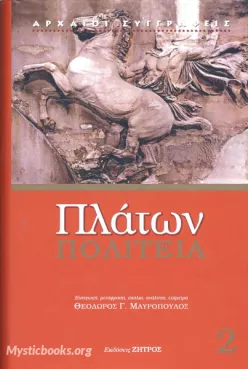
Πολιτεια του Πλατωνα (τομος δευτερος)
Η "Πολιτεία του Πλάτωνα" είναι ένα αρχαιοελληνικό φιλοσοφικό διάλογο το οποίο εξετάζει ένα ευρύ φάσμα θεμάτων, από τη δικαιοσύνη και την κοινωνική οργάνωση μέχρι τη φύση της ψυχής και της πολιτικής. Στον δεύτερο τόμο αυτής της έργου, ο Πλάτων παρουσι...
Showing 1 to 24 of 43 results